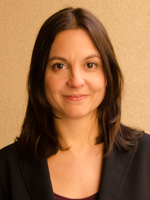Politico: Judge orders NYPD to enact pilot program on low-level stops
Judge orders NYPD to enact pilot program on low-level stops
By Brendan Cheney
A federal judge overseeing stop-and-frisk-related cases has ordered the New York Police Department to conduct a pilot program to record lower-level encounters that don’t rise to a full police stop.
The plaintiffs in the case, community advocates, and a facilitator appointed by the judge had all recommended this change after three years of public feedback.
“By requiring the NYPD to provide a more complete picture of its investigative activity on the streets, the court’s pilot will allow us to see whether the City is bringing the stop-and-frisk practice into compliance with the Constitution,” said Jenn Rolnick Borchetta, a deputy director with the Bronx Defenders and an attorney for the plaintiffs, in an email to POLITICO.
The NYPD and the Patrolmen’s Benevolent Association opposed the recommendation, with the NYPD saying in a letter to the court last month that the recommendation “is neither practical nor feasible.”
John Grimpel, a spokesman for the NYPD, said the department is evaluating the judge’s order and will decide on next steps in the near future. “We have worked very closely with the monitor to implement many positive changes, including enhanced training programs and new policies designed to police effectively and lawfully while building trust,” he said.
The pilot program would require the NYPD to record all three levels of police encounters established by the state Court of Appeals. The department would have to categorize the encounter based on what the police are requesting and whether the person feels free to walk away.
Interactions generally referred to as “stop and frisk” are considered a level-three encounter. During such an encounter, a police officer can stop an individual if the officer has reasonable suspicion that the person has committed or is about to commit a crime.
The person is not free to walk away and the officer may frisk the person if officers have reasonable suspicion that they or others are in danger. Police officers already must record all level-three stops.
In level-one stops, a police officer requests information for a reason he or she can articulate, possibly asking for the person’s identity, destination or reason for being in the area. Level-two stops are called a common law right of inquiry, in which an officer’s questioning can be more probing and accusatory but should be based on a suspicion of criminal activity.
Advocates believe that the distinctions are unclear to people being stopped. Rolnick Borchetta, the attorney, said the judge’s order begins to address community concerns about what she said are illegally coercive low-level police encounters.
NYPD data show that even as the number of recorded level-three stops has declined dramatically, most stops are still of blacks and Hispanics. In 2017, 58 percent of those stopped were African-American, 32 percent were Hispanic and 9 percent were white.
Audits have shown that many stops are going unreported. One sample audit included in a 2017 federal monitor’s reportfound that 45 percent of police stops were not recorded.
The order requires the NYPD to submit a proposal for the pilot program by Sept. 13. Judge Analisa Torres said the plan should include a way to measure the effectiveness of recording level-one and level-two stops in reducing unconstitutional encounters.
Former federal judge Shira Scheindlin ruled in 2013 that the NYPD’s stop-and-frisk practices violated the Constitution. Former Mayor Michael Bloomberg planned to appeal, but Mayor Bill de Blasio submitted to the decision.
Scheindlin’s ruling called for a court-appointed monitor; specific changes to training, documentation and discipline; a body-camera pilot program; and a process of community engagement programs to come up with further reforms. The NYPD and community advocates were not able to agree on those reforms.
After the new pilot program, Torres said the federal monitor will report on whether the benefits of the new policy outweigh “the financial, administrative, and other costs, and whether the program should be expanded or terminated.”

